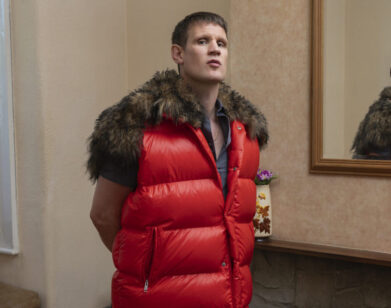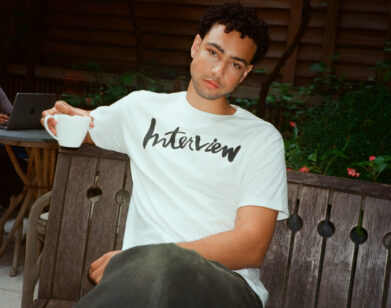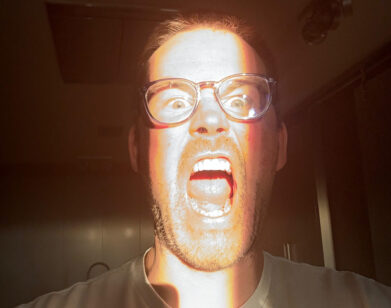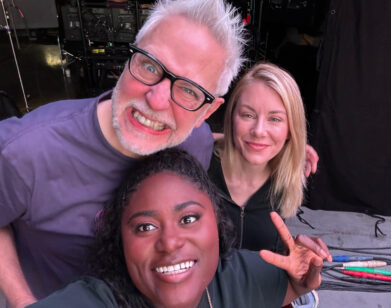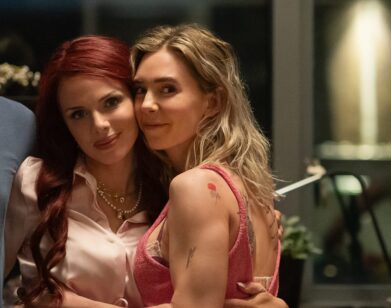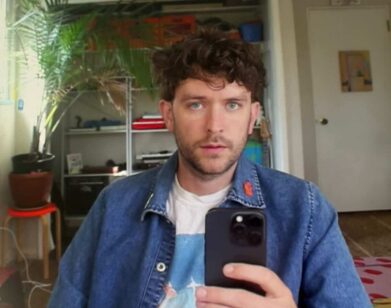The Psychology of Kitsch
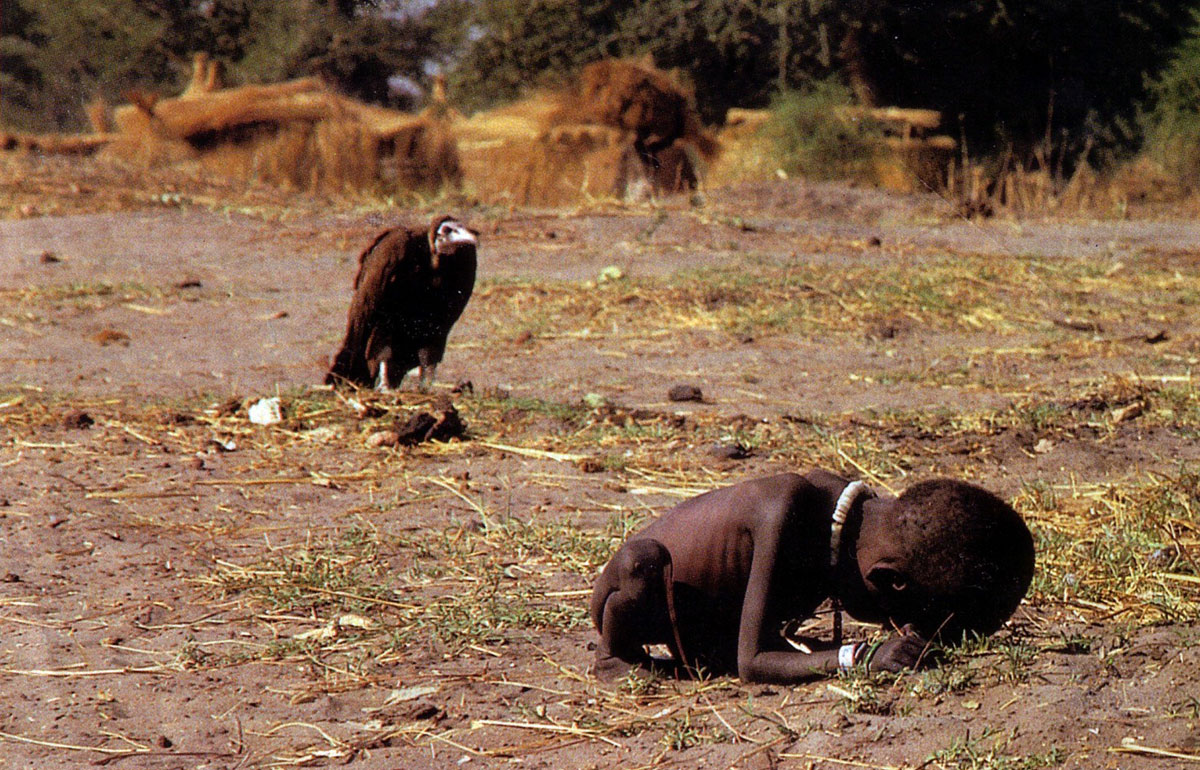
TAYLOR KITSCH AS KEVIN CARTER IN THE BANG BANG CLUB. PHOTO COURTESY OF MARCUS CRUZ
“The [New York Times,] the world’s greatest newspaper, had never won a Pulitzer for photography, despite bagging many for writing, so when nomination time came around, they eventually did submit Kevin’s picture,” recount conflict photographers Greg Marinovich and João Silva in their autobiographical book about their band of four photographers in South Africa’s Apartheid, The Bang Bang Club: Snapshots from a Hidden War. “It was without question the most powerful image they had published that year.” The haunting picture, taken in 1993 by South African photojournalist and fellow Bang Bang cohort Kevin Carter, featured a starving Sudanese girl squatting and resting her head on the ground as a vulture stalks nearby, caused a sensation around the world and won Carter a Pulitzer—and without delay, earned him a deluge of questions and criticism. Nearly four months later, Carter, whose life “was once again a mess”—broke and broken—killed himself.
Carter’s story caught the attention of director Steven Silver. The resulting film would explore the lives of the four photographers—their bonds, the brutal and violent world of post-Apartheid South Africa in the early ’90s, and “the cost of bearing witness,” as Silver noted in a recent press conference. The film’s push for authenticity stands out. “Ninety percent of the locations are exactly where that event took place, literally down to the street corner. What that meant was that the communities who are in those locations lived through those events not that long ago. So the extras that you see in the film are not really extras. They weren’t really acting, they were remembering.”
The film stars Taylor Kitsch, Frank Rautenbach, Neels Van Jaarsveld, and Ryan Phillippe, whose main challenges (“beyond the accent,” he jokes) “were sort of educational. There was a lot about this time in that country, I wasn’t aware of.” Malin Ackerman co-stars as Robin Comley, the photo editor at the Johannesburg Star and “mother hen [to her] boys.”
Greg Marinovich (played by Phillippe) was also at the Tribeca Film Festival press conference, held less than a day after the deaths of colleagues Tim Hetherington and Chris Hondros. He spoke a bit about their achievements as wartime photojournalists: “They were two great photojournalists… It kind of underlines the risks that conflict journalists face, not just photographers.” He continued, questioning “how much emphasis should be put on people who choose to be in a war zone like we did, and how much sympathy are we due. Not much, I suspect. It’s not great, it’s terrible, it’s upsetting, they were terrific guys, but we do go there voluntarily, and I think that has to be borne in mind.”
Canadian-born actor Taylor Kitsch has taken a liking to photography since Bang Bang. He’s equally enmored of his character, Kevin Carter—Kev, as he calls him. He also spoke with Interview about life off set (and on ice!) as well as what it was like working with Rihanna, who makes her acting debut in Peter Berg’s (Friday Night Lights) sci-fi naval war film, Battleship.
DURGA CHEW-BOSE: You’ve mentioned that this role as Kevin Carter is the reason why you want to act. Can you elaborate on that?
TAYLOR KITSCH: Guys that truly inspire me bring and lose themselves in the roles. This was one of them for me. It was an emotional rollercoaster, and hopefully at the end of the day, if I’ve done my job, you’re on that ride with me. So it’s validating and challenging, and you go through an incredible experience of what this experience entailed. When you take on something like this, at the end of the day, when you’re done with it, you’re going to be better, man. On so many levels.
CHEW-BOSE: The film didn’t focus too much on Kevin’s addiction to drugs; his attraction to vices…
KITSCH: Which was a very conscious decision.
CHEW-BOSE: As an actor, have you ever had any vices that have gotten in the way of your work? Or anything you’ve had to drop or overcome to better your career?
KITSCH: I don’t know. I think you can be your own worst enemy. We were definitely tracking Kev because we wanted to show the full spectrum of him—not the drugs, but the empathetic and caring guy.
CHEW-BOSE: In one scene, he’s scurrying to find loose buds and crumbs of weed on his dusty floor—when he’s totally broke.
KITSCH: He’s very unconscious of what he’s doing, which is sad at the same time. There were scenes I didn’t think were gonna affect me, and I was kind of caught off-guard. I walked away doing the Pulitzer Prize scene, where he wins and then wakes up in that drug house. Afterward, I was like, “That is probably one of the saddest scenes I’ll ever play.” It’d be like me winning an Oscar and not even being conscious of it. It’s incredible, that role. It was a ride.
CHEW-BOSE: Were you able to, or did you want to, bring parts of yourself into the role? Or because it’s based on Kevin Carter, you were restricted to what you’d read about him or from conversations with Greg and João, and other friends?
KITSCH: No, ’cause if I’m doing this guy honestly, I’m not worried about what I’m bringing of myself. Other variables come into play. I’m not worried about being entertaining or anything, because this guy was alone. If I can play this guy honestly, and keep it simple, and really envelope his choices and play those well, then it’ll fine. It was really just becoming him, and telling his story.
CHEW-BOSE: Was it intense having João and Greg on set?
KITSCH: It was huge. You know, I think it raised my game. I would have done anything to play [Kevin]. But to have these guys there, I really had a tangible sense of how much it meant to them. So it made me even more focused; more doing it for them, really. And doing it justice.
CHEW-BOSE: Has [Carter] become one of your heroes?
KITSCH: That’s a great word; what it entails. I admire him for the courage. I admire a lot of pieces of who he was. Absolutely.
CHEW-BOSE: To switch gears for a second, you grew up in Kelowna, British Columbia, playing hockey…
KITSCH: Yeah! Yeah!
CHEW-BOSE: And you were really close to going pro. Do you miss it?
KITSCH: I think you’ve got to believe, that for some reason, things happen for a reason. I think I’m blessed that I can still play hockey and have my knees, and I get out there as much as I can…
CHEW-BOSE: Outdoors, ever?
KITSCH: Oh no, no, I can’t, I can’t. I haven’t played outdoor in forever! Oh, I’d murder to, though. But I play once a week in LA if I’m there. I’m in a league in Austin. So I think I got the best of both worlds. I think I’ve grown way more as a person through this than I would have if I’d stayed on track with hockey.
CHEW-BOSE: You’ve been busy shooting a lot of different movies, like John Carter of Mars, Battleship, and soon, Oliver Stone’s Savages. Your role in Bang Bang was really emotionally intense for you and in other roles, it’s been physically challenging too. How do you unwind or separate yourself from your characters after each shoot?
KITSCH: Hockey. I think that’s when you really take those projects on, it’s taxing and you’ve got to pick the right ones and want to work with the people, and tell these stories. Because believe me, I don’t care who you are, there’s days on these sets, any set, that it’s just like, I can’t get out of bed, I’m too tired, I just want one day off, let me regroup. It’s those days that test you where you get up for some other reason, know what I mean? To tell this guy’s story you know? You sacrifice a lot more than even you think you would.
CHEW-BOSE: So you worked with Rihanna on Battleship in her debut acting role…
KITSCH: I did, yeah.
CHEW-BOSE: What was that like?
KITSCH: She was good, man. She showed up to work. And you know, there wasn’t any special treatment or anything like that, and I don’t think any one of us would have allowed it anyway. [laughs] She’s chill, she was great.
CHEW-BOSE: Have you ever felt that being treated like a sex symbol has gotten in the way of the work you want to be doing or have done?
KITSCH: No, I mean, look at the roles I’m getting. It’s a conscious thing, I guess, I don’t really… I live in Austin, and I’ve been so grateful to get these character pieces. And I’m always going to be doing, hopefully, knock on wood, these gritty things. And that’s what I want to be a part of.
CHEW-BOSE: Do you ever worry that you might always be in the shadow of Tim Riggins?
KITSCH: No. Not at all. Not at all.
THE BANG BANG CLUB IS SHOWING IN SELECT THEATERS STARTING TODAY, AND IS ALSO CURRENTLY AVAILABLE NATIONWIDE VIA VIDEO ON DEMAND. TO FIND OUT IF THE FILM IS PLAYING IN A THEATER NEAR YOU, VISIT ITS WEBSITE.

